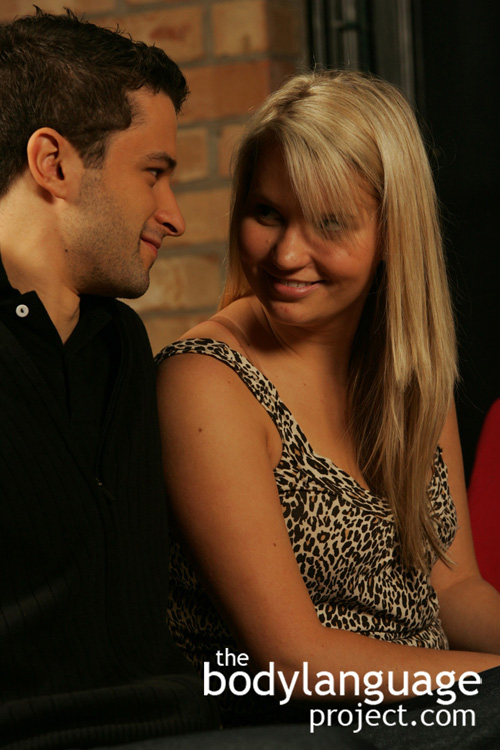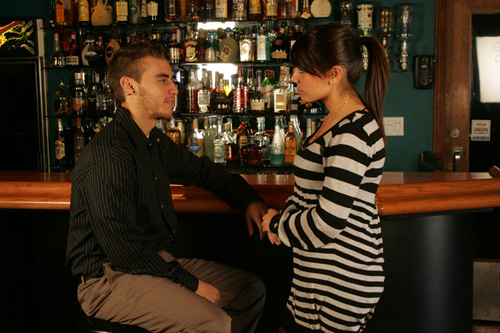
The eyes are the windows to your soul.
As mentioned, men can use a variety of ways to attract subtle attention. In accordance with the rules of the mating dance, men can see these tactics to create interest and attract women. The real goal of male sexual body language is to induce a woman to look at him, to notice him, the rest is the responsibility of verbal dialogue. It doesn’t get a whole lot more extensive than that.
Once he has her eye, a man should use proper gaze patterns. Most men will make the mistake of smiling too quickly or smiling before she has even noticed him. Worse perhaps, is their grin will appear etched on their face which appears to women as gawking and is off-putting. Men should always limit gazing to three seconds or less, any longer than this comes off as staring or leering. To start, men should first try to establish eye contact, then once established, wait a fraction of a second then flash a quick smile before turning away shyly as if being busted with the hand in the cookie jar. If this feels uncomfortable, use what is called a “slow growing smile” where the smile is directed with eye contact and seems to grow in direct response to the woman.

Mutual gaze.
Men should always wait until eye contact is established before smiling. This tells the target that he is smiling at her rather than smiling generally, or smiling at someone in her direction, or just smiling because he’s heard someone say something funny. Eye contact is the most reliable way to anchor a smile. The effect men are trying to convey is that he has noticed her, got caught looking, but isn’t apologetic because he sincerely finds her attractive. Whenever men hold mutual eye contact followed by a smile they should hold it for at least two to three seconds before breaking it by looking downward. Men should never look to the side when finishing an eye gaze pattern, or break eye contact immediately once established, since it will indicate to a women that he was merely stealing a look, or was just caught staring. In either case, it sends the message that no interest was present, he was just scanning the room, or he’s already in a committed relationship and was checking another women out, but isn’t capable or willing to act on his eye language.
Once eye contact is broken for the first time, it is important for the man to immediately reestablish it, followed by even more powerful smile. If this second bout yields a smile in return there’s a good chance an approach will be welcomed. Women need some time to decide if attraction is present, just like men need time to isolate interesting targets from all other women present. This is why the first sequence rarely produces a smile, whereas the second is a much better possibility. If a smile happens on the first try, it tells us that she was thinking about him even before their first glance, which is also a strong signal.






